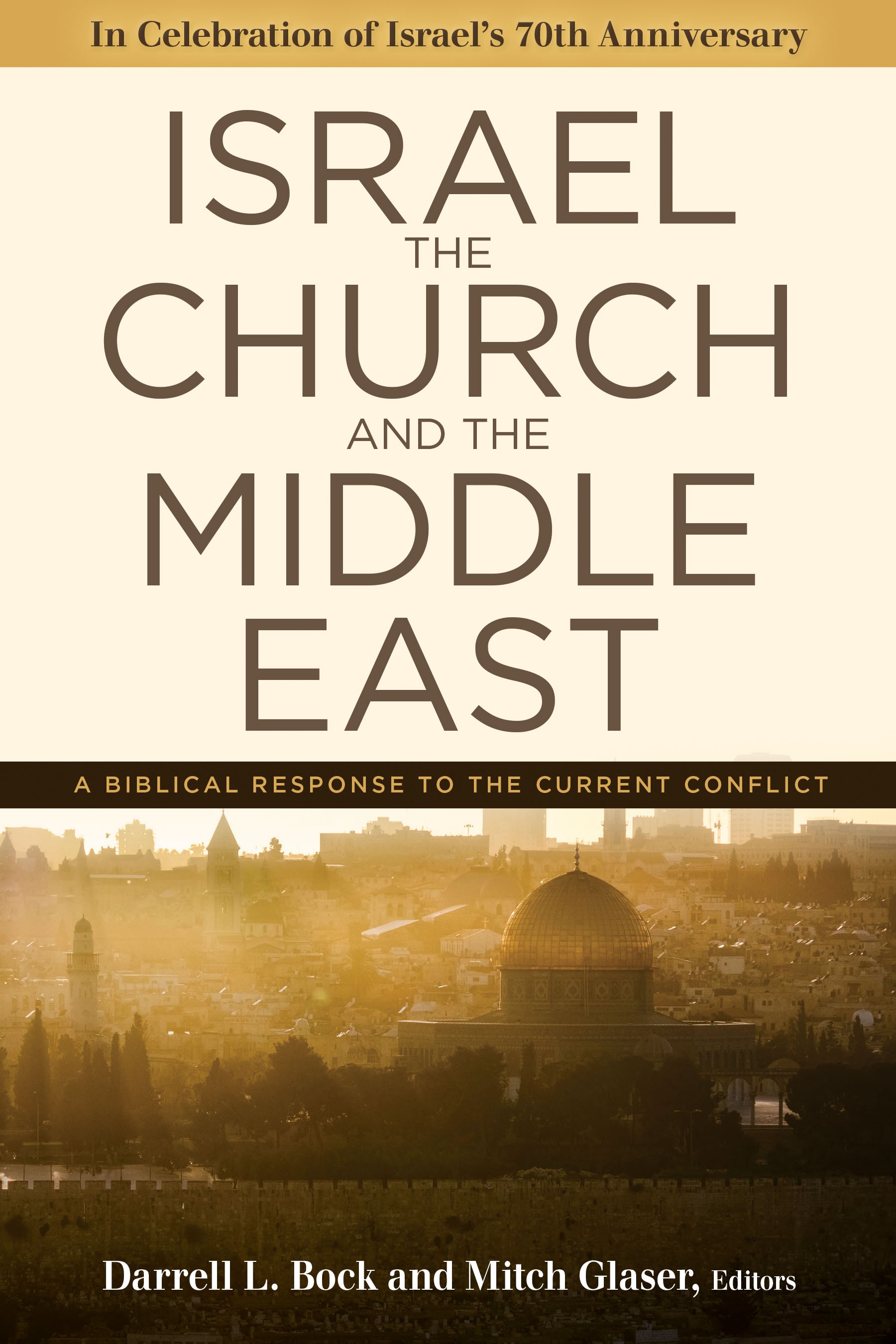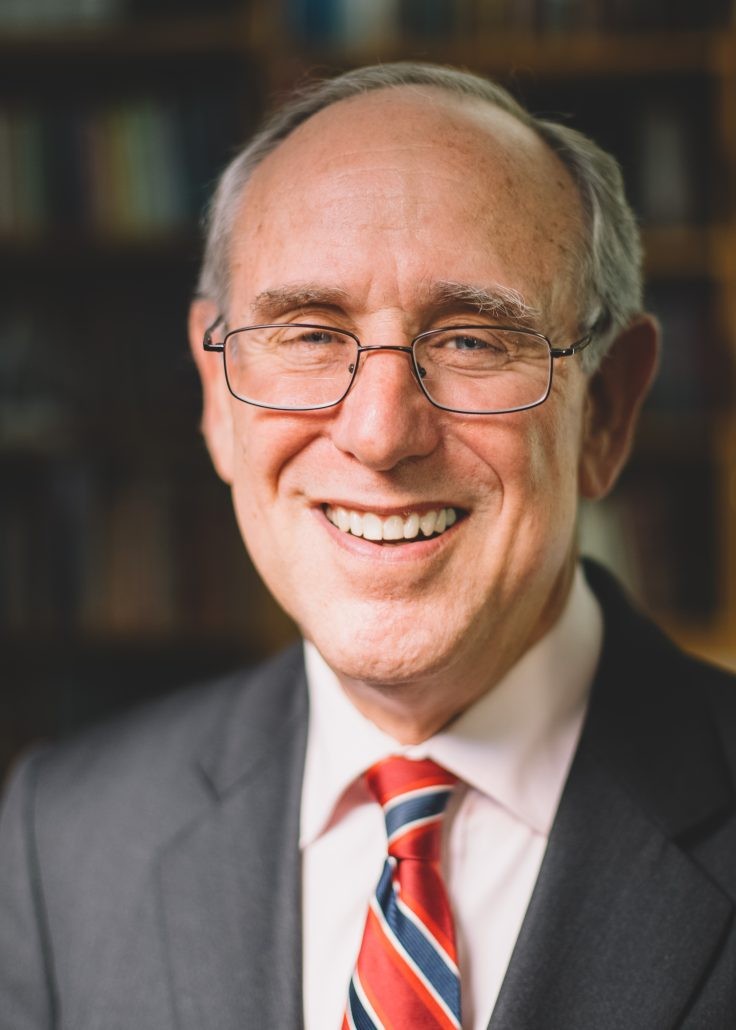3 Questions to Ask in Light of the Israel-Palestine Conflict
May 08, 2018

It seems like every day there’s news about the Israel-Palestine conflict. Bomb threats. Demonstrations. Shootings. Talk of embargos.
But in America, support for Israel and the Jewish people is declining.
Maybe this decline surprises you. Maybe it’s even more surprising that this decline is directly linked to theological shifts taking place in our time.
Chosen People Ministries, the organization I lead and where Darrel Bock is a Board member, and LifeWay Research released a national survey in 2017–2018 titled “Evangelical Attitudes Toward Israel” that revealed some eye-opening trends among evangelicals. While pointing out dividing lines among evangelicals, we always emphasize that the gospel should produce reconciliation among those who share an identity in what God has done through Jesus Christ.
Here are some important questions we learned we should be asking.
Has the Church Replaced Israel?
One of our theological concerns is the rise of what is commonly called “supersessionism.” Supersessionists believe the Christian church has superseded Israel as the people of God, and the future national promises to Israel outlined in the Old Testament terminated at the cross. As our survey indicated, those who affirm supersessionist views tend to be less positive toward Israel and less engaged in bringing the gospel to the Jewish people.
Only 41 percent of respondents disagreed with the statement “The Christian church has fulfilled or replaced the nation of Israel in God’s plan,” while 30 percent outright agreed that the church has replaced the Jewish people.
As Christians, viewing the Middle East conflict through the lens of Scripture is crucial. For example, those who disagree that the church has replaced Israel are more likely to support Israel because “the Bible says God gave the land of Israel to the Jewish people.” They also are less likely to agree that “biblical passages about Jewish people having a right to the land of Israel no longer apply today.”
In response to our findings, new organizations like the Alliance for the Peace of Jerusalem are preparing resources and providing tools to help the church, especially those under 40, better understand that God has an ongoing plan for the Jewish people today and tomorrow that is consistent with scriptural teaching, especially the importance of Jewish people believing in Jesus in order to receive the personal and national promises of God.
Should We Share the Good News with the Jewish People?
“Of course!” you probably say. In the minds and hearts of most evangelicals, the Jewish people are included in the Great Commission of Mathew 28:19–20, and our survey affirms this. 86 percent of pro-Israel evangelicals also believe sharing the good news of the Messiah with the children of Israel is important. Evangelism is critically important for Palestinians, as well. The gospel is for all people.
However, we found that theology does impact the carrying out of Christ’s commission. While there was only a slight difference between pro-Israel evangelicals and supersessionists about the importance of sharing the gospel with Jewish people, the numbers of evangelicals who have spoken to their Jewish friends about the Lord was 11 percent higher.
Evangelicals of all stripes need even more support in bringing the good news to the Jewish people, though. 30 percent of evangelicals have Jewish friends, but 60 percent of that number have not shared the gospel with any of their Jewish friends in the last year.
What About Jewish People Who Are Already Evangelical?
More than 870,000 people, or 2 percent of the US evangelicals we surveyed, are Jewish, either through their parents or grandparents. While we can’t comment on the level of Jewish identification they practice or observe, the numbers themselves are remarkable, much higher than previously thought.
The Apostle Paul speaks of an eventual turning of Jewish people to Jesus in Romans 11:25–29. This is a well-known belief among evangelicals and, according to the survey, 55 percent of evangelicals believe the Bible teaches that one day most, or all, of the Jewish people alive at the time Jesus returns will believe in Him.
There does appear to be a growing trend of Jewish people becoming Christians. Today, many of these identify as messianic Jews who also tend to strongly identify with the Jewish community. In his recent article “Evangelicals and Israel,” Itzhak Rabihiya in the Jerusalem Post points out that Jews who believe in Jesus form the most natural bridge between the Jewish community and evangelicals.
Our recent book Israel, the Church and the Middle East focuses on many of these same issues and seeks to provide an informative, balanced, and biblical response to the current conflict. One chapter describes the growth of the Palestinian church in Israel and another the same for the indigenous Israeli Messianic movement, emphasizing how important it is to pray for both Jewish Israelis and Palestinians to put their trust in Yeshua - Jesus the Messiah. We hope to engage the church in fruitful dialogue about these theological and political issues that will generate more light than heat. In fact, a growing appreciation of the role of Israel in Scripture will lead to deeper appreciation for the unique role the nations play in the plan of God and a more authentic unity within the body of Christ.
But in America, support for Israel and the Jewish people is declining.
Maybe this decline surprises you. Maybe it’s even more surprising that this decline is directly linked to theological shifts taking place in our time.
Chosen People Ministries, the organization I lead and where Darrel Bock is a Board member, and LifeWay Research released a national survey in 2017–2018 titled “Evangelical Attitudes Toward Israel” that revealed some eye-opening trends among evangelicals. While pointing out dividing lines among evangelicals, we always emphasize that the gospel should produce reconciliation among those who share an identity in what God has done through Jesus Christ.
Here are some important questions we learned we should be asking.
Has the Church Replaced Israel?
One of our theological concerns is the rise of what is commonly called “supersessionism.” Supersessionists believe the Christian church has superseded Israel as the people of God, and the future national promises to Israel outlined in the Old Testament terminated at the cross. As our survey indicated, those who affirm supersessionist views tend to be less positive toward Israel and less engaged in bringing the gospel to the Jewish people.
Only 41 percent of respondents disagreed with the statement “The Christian church has fulfilled or replaced the nation of Israel in God’s plan,” while 30 percent outright agreed that the church has replaced the Jewish people.
As Christians, viewing the Middle East conflict through the lens of Scripture is crucial. For example, those who disagree that the church has replaced Israel are more likely to support Israel because “the Bible says God gave the land of Israel to the Jewish people.” They also are less likely to agree that “biblical passages about Jewish people having a right to the land of Israel no longer apply today.”
In response to our findings, new organizations like the Alliance for the Peace of Jerusalem are preparing resources and providing tools to help the church, especially those under 40, better understand that God has an ongoing plan for the Jewish people today and tomorrow that is consistent with scriptural teaching, especially the importance of Jewish people believing in Jesus in order to receive the personal and national promises of God.
Should We Share the Good News with the Jewish People?
“Of course!” you probably say. In the minds and hearts of most evangelicals, the Jewish people are included in the Great Commission of Mathew 28:19–20, and our survey affirms this. 86 percent of pro-Israel evangelicals also believe sharing the good news of the Messiah with the children of Israel is important. Evangelism is critically important for Palestinians, as well. The gospel is for all people.
However, we found that theology does impact the carrying out of Christ’s commission. While there was only a slight difference between pro-Israel evangelicals and supersessionists about the importance of sharing the gospel with Jewish people, the numbers of evangelicals who have spoken to their Jewish friends about the Lord was 11 percent higher.
Evangelicals of all stripes need even more support in bringing the good news to the Jewish people, though. 30 percent of evangelicals have Jewish friends, but 60 percent of that number have not shared the gospel with any of their Jewish friends in the last year.
What About Jewish People Who Are Already Evangelical?
More than 870,000 people, or 2 percent of the US evangelicals we surveyed, are Jewish, either through their parents or grandparents. While we can’t comment on the level of Jewish identification they practice or observe, the numbers themselves are remarkable, much higher than previously thought.
The Apostle Paul speaks of an eventual turning of Jewish people to Jesus in Romans 11:25–29. This is a well-known belief among evangelicals and, according to the survey, 55 percent of evangelicals believe the Bible teaches that one day most, or all, of the Jewish people alive at the time Jesus returns will believe in Him.
There does appear to be a growing trend of Jewish people becoming Christians. Today, many of these identify as messianic Jews who also tend to strongly identify with the Jewish community. In his recent article “Evangelicals and Israel,” Itzhak Rabihiya in the Jerusalem Post points out that Jews who believe in Jesus form the most natural bridge between the Jewish community and evangelicals.

Israel, the Church, and the Middle East
A Biblical Response to the Current Conflict
A Biblical Response to the Current Conflict
The relationship between the church and Israel has been the source of passionate debate among Christians throughout much of church history. In recent years the traditional pro-Israel stance of evangelicals has come under fire by those who support the Palestinian cause, calling for a new perspective and more nuanced approach by Christians who believe that the land of Israel belongs to the Jewish people by virtue of God’s covenants and promises.
Our recent book Israel, the Church and the Middle East focuses on many of these same issues and seeks to provide an informative, balanced, and biblical response to the current conflict. One chapter describes the growth of the Palestinian church in Israel and another the same for the indigenous Israeli Messianic movement, emphasizing how important it is to pray for both Jewish Israelis and Palestinians to put their trust in Yeshua - Jesus the Messiah. We hope to engage the church in fruitful dialogue about these theological and political issues that will generate more light than heat. In fact, a growing appreciation of the role of Israel in Scripture will lead to deeper appreciation for the unique role the nations play in the plan of God and a more authentic unity within the body of Christ.

Mitch Glaser
Mitch Glaser is the president of Chosen People Ministries. Mitch and his wife, Zhava, are Jewish believers in Jesus and have each labored for more than twenty years in ministry among the Jewish people. Mitch holds a PhD in Intercultural Studies.

